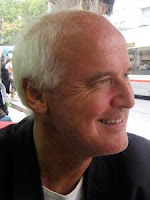Caygill’s introduction and first chapter to his Kant’s dictionary is the best summary of Kant’s life and work that I know. As he says:-
Anyone practising literary or social criticism is contributing to the Kantian tradition: anyone reflecting on the epistemological implications of their work will find themselves doing so within the parameters established by Kant [his emphasis].
The Enlightenment was the age of criticism with the freedom to examine and criticise the institutions of Church and State. The fundamental condition of the possibility for the age of criticism was the ‘freedom to make public use of one’s freedom in all matters’ [Kant’s emphasis]. As I mentioned on my personal blog (see post), the internet now means public critique is no longer totally dependent on the existence of a publisher, as it was in Kant’s time. At least blogging is freely available on Blogger, which I have used extensively, including 15 years of this blog (see previous post)!
I have mentioned Kant several times previously in this critical/relational psychiatry blog. In particular, I make use of his view that the link between mental and physical is an enigma that can never be solved (see eg. previous post). Kant has been proved right, in a way, that function is not as well localised in the brain as we might hope and expect (see eg. another previous post). As taken forward by Foucault (see eg. yet another previous post), modern psychiatry had its origins in the epoch of criticism, as even reason had to submit to reason’s ‘test of free and open examination’. Kant’s Critique of Judgement, in particular, inquires into the conditions of the possibility of judgement itself. Teleological explanation of nature is required rather than a mechanical one. Mechanical explanation cannot explain living beings. There are limits and boundaries to the extent of legitimate knowledge, including about mental illness (see eg. previous post).
Despite criticism of biomedical psychiatry, it retains dominance in the field of mental health. I’ve always said the wish to find a biological basis of mental illness will never completely go away. But, like Kant, criticism needs to continue to be persistent and obstinate in examining the basis of psychiatry’s, and not just biomedical psychiatry’s, knowledge claims and practice. Psychiatry, including its critical version, needs to be self-critical.


No comments:
Post a Comment